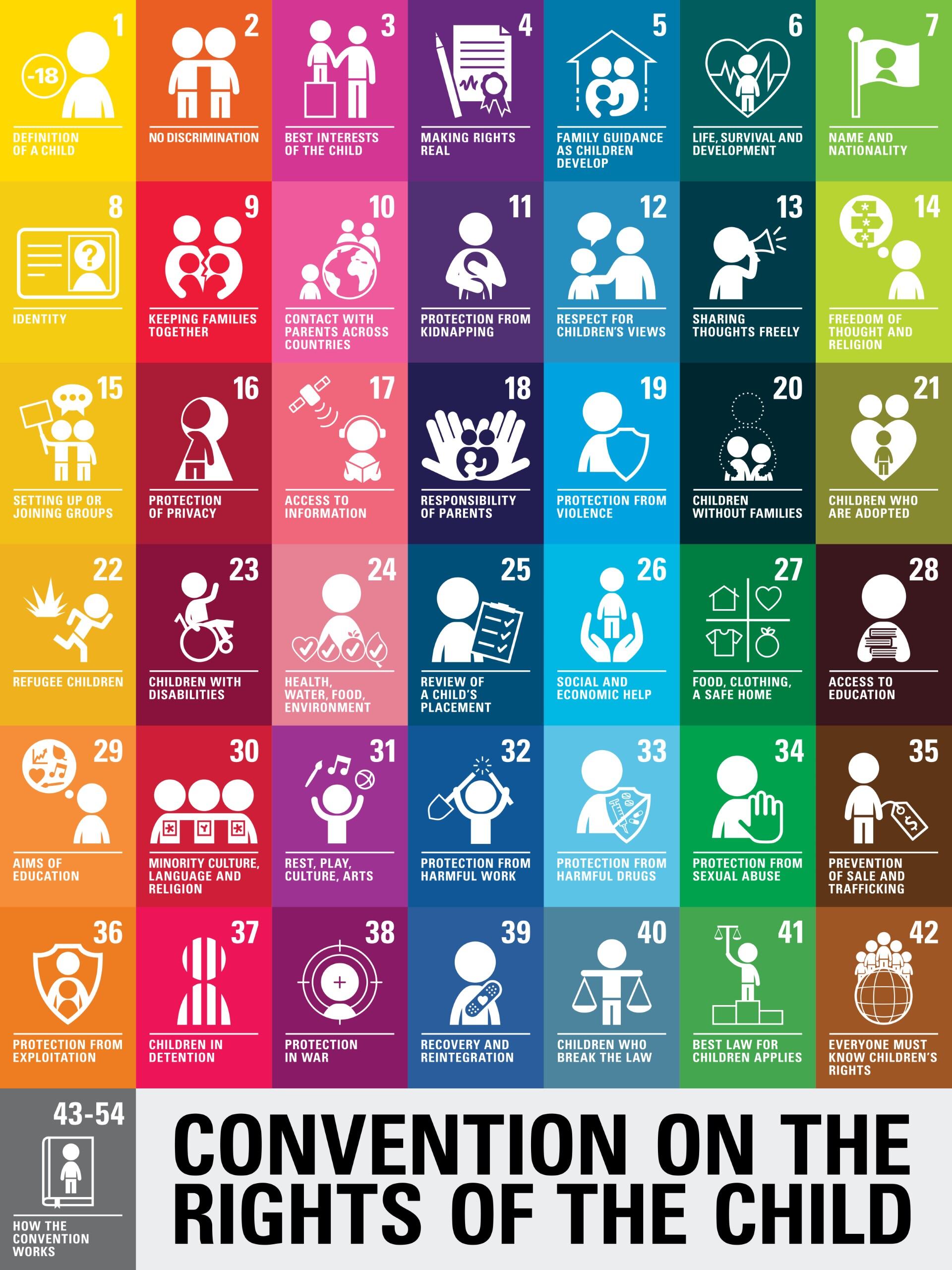What do children need to grow up happy, safe and healthy? Children’s rights are specific rules that tell the government what children deserve. These rules cover what children need and how they should be treated. These rights apply to anyone under 18 years old, and are recognised all around the world.
Children have the same rights as adults. They have some extra rights too, to support their development. These rights are written down in a major global agreement called the Convention on the Rights of the Child. There are 54 children’s rights – covering children's survival, development, participation and protection. These rights are all equally important and are interconnected– if one right isn’t respected, it can affect the others.

The United Nations Convention on the Rights of the Child is an important agreement by countries who have promised to protect children’s rights. It explains who children are, all their rights, and the responsibilities of governments. The icons and the text are available in range of languages here.
The Convention on the Rights of the Child also explains four key principles that guide how your rights are protected. It's important for governments, businesses, and all adults to follow these principles. They are:
1️⃣ Non-discrimination. No-one should treat you unfairly because of who you are or where your family comes from.
2️⃣ The best interests of the child. Adults should work out what’s best for you and try to make it happen.
3️⃣ The right to life, survival and development. You should have the chance to develop and thrive.
4️⃣ The right to be heard. Adults should listen to what you think and want and take that into account when they make decisions that matter to you.
You can learn more about your rights from the resources below. Then take a look at Know your rights online!